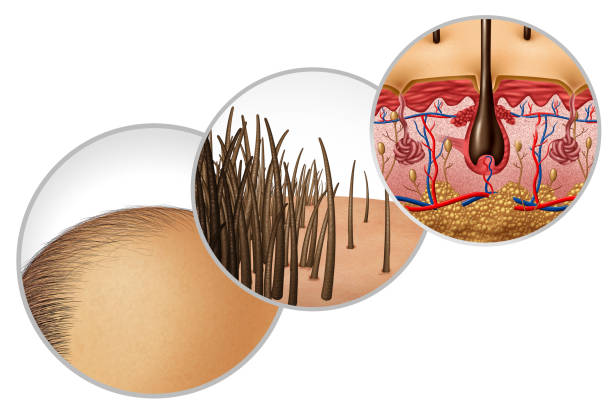How Effective Are Different Hair Transplant Methods? | |
|
Hair transplants are intended to restore hair growth to regions of the scalp that have limited or absent growth. While they can be effective in treating many types of hair loss and stop future losses however, they cannot prevent future loss of hair. For lasting results, people may need follow-up transplants.
Thinning and hair loss are normal occurrences of aging, but they can also be due to an illness or trauma to the scalp. A hair transplant doctor is an option for people suffering from hair loss. This can be either cosmetic or reconstructive. In this article, we will look at the rate of success for various kinds of hair transplants in addition to the length of time they last as well as the possible adverse effects that they might have. Different types of hair transplants A surgeon removes hair follicles from the donor area, which is a dense hairline. The surgeon then inserts the follicles into tiny slits on the scalp. There are two major kinds of hair transplants: Follicular unit strip surgery (FUSS) The surgeon will remove a strip of skin from the donor site and close the incision using stitches. They then utilize microscopes to cut the skin of the donor into tiny follicular units which contain one or several hair follicles and insert these units into the desired location. Follicular unit extraction (FUE) The surgeon will use an instrument that is small to eliminate follicles from the donor area. The procedure could cause some scarring but it will not be visible and is usually not required stitches. Rates of success Hair transplants can be used to improve hair growth following numerous types of hair loss. The success of hair transplants depends on several factors including the experience and skill level of the surgeon and the amount of hair that is donated. The American Society of Plastic Surgeons affirms that hair transplants may cause a slight growth in the hair's fullness. People may choose to have their skin flaps, tissue expanded, or reduce their scalp. There aren't any major studies that list specific hair transplant success rates. There are however a number of articles and smaller studies that offer information about the efficacy of these procedures.
Do hair transplants last?
A majority of people notice a the hair becoming thicker following hair transplant Denver. Some people may experience loss of hair or thinning following the procedure. This can make the hair look unnatural. For longer lasting results, people may require follow-up transplants. Side effects According to the ASPS hair transplants are able to be carried out by trained and skilled surgeons. But, even after successful hair transplants, some side effects can happen. Bleeding or infection Incisions or cuts are required for hair transplants. An surgeon will make an incision to cut off the donor follicles, and they make tiny incisions on the scalp to insert the hair follicles. With any incision there is the risk of bleeding excessively or infection. Scars The scarring may also affect the donor and recipient areas. Prior to deciding whether or not to go through the procedure it is best to consult with your surgeon. The surgeon will usually leave an unnaturally long and straight scar after the FUSS procedure. As hair grows around the scar, it could disappear. However, it may be noticeable if the wound gets larger during healing, if the surrounding hair is thicker, or a person wears it shorter. The FUE procedure can also cause some scars to the area where the surgeon removed the follicles with the tool for punching. However, these scars may not be as extensive as those from FUS. Sometimes, bumps could appear around the transplanted hair. These bumps can disappear once hair loss develops. The swelling and pain There are some who feel pain while their skin heals following procedure. The surgeon may prescribe pain relief medications to ease the discomfort. They might also experience swelling of the face and head as the skin heals. Summary Individuals who suffer from hair loss or hair loss might consider transplant surgery. Although it's not permanent, hair transplant surgery can restore hair fullness confidence, self-confidence and aid people who have hair loss. | |
 |
